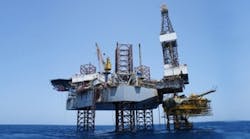For answers, we turned to those on the front lines. "There is a major expansion of the chemical industry, driven by the shale gas boom, that is in the early stages of design and execution," says Peter Lietz, a senior process control engineer at LyondellBasell Industries in Clinton, Iowa. "I believe there are far more projects under consideration right now than there are individuals to execute these projects simultaneously," adds Lietz.
Chet Mroz, CEO of Yokogawa Corp. of America expands upon Lietz's observations. "Onshore, in the United States and Canada, growth is centered on unconventional resource plays such as oil sands and shale gas, which take advantage of horizontal drilling and hydraulic fracturing," he says. "These growth areas are driven by the opening of global markets, particularly Pacific Rim via the LNG facilities, and by new pipelines, such as the proposed Northern Gateway pipeline. Offshore in the Gulf of Mexico, growth is centered on deepwater production."
Oil and gas exploration, drilling and production directly drive demand for automation professionals worldwide. In the United States, a bigger driver may be the construction and ongoing operation of downstream petrochemical plants that use oil, gas and drilling byproducts as feedstock.
An article in the July 14, 2012, issue of The Economist elaborates: "Cheap gas is also helping other parts of America's economy. The country's industry uses around a third of its gas output. The biggest winner might be the petrochemicals industry. It gobbles up gas as feedstock to make chemicals such as methanol and ammonia, a vital ingredient of fertilizer. Switching feedstock from naphtha, derived from oil, to ethane, derived from gas, has kept petrochemicals cheap even as oil prices have peaked.
"Dow Chemical and others have announced a raft of new investments in America to take advantage of low gas prices…PricewaterhouseCoopers, a large accounting firm, reckons that lower feedstock and energy costs could result in 1 million more American factory jobs by 2025."
Lietz says this bodes well for automation pros in many disciplines. "Professionals with expertise in system security, safety system design and implementation, and basic process control system design and implementation will be in demand for the execution of current and near-term projects.
"An area of high long-term demand will be advanced process control (APC) for the chemical/petrochemical industry, and these individuals must be knowledgeable in non-linear as well as linear controls. A solid background/understanding of chemical process engineering is also necessary to be successful within APC for the chemical industry," concludes Lietz.
Mroz adds his thoughts on what expertise will be of value. "Process automation professionals are needed within the oil and gas companies, as well as main automation contractors such as Yokogawa.
Specifically, we see a growing need for SCADA and RTU experts with knowledge of PLC languages such as IEC1131. In addition, integration and networking experts are needed to combine instrumentation, control and operations management requirements—while also complying with the cybersecurity requirements. Lastly, we see an increased need for safety engineers with fire and gas and emergency shutdown system backgrounds, and for traditional distributed control system expertise for offshore applications."




